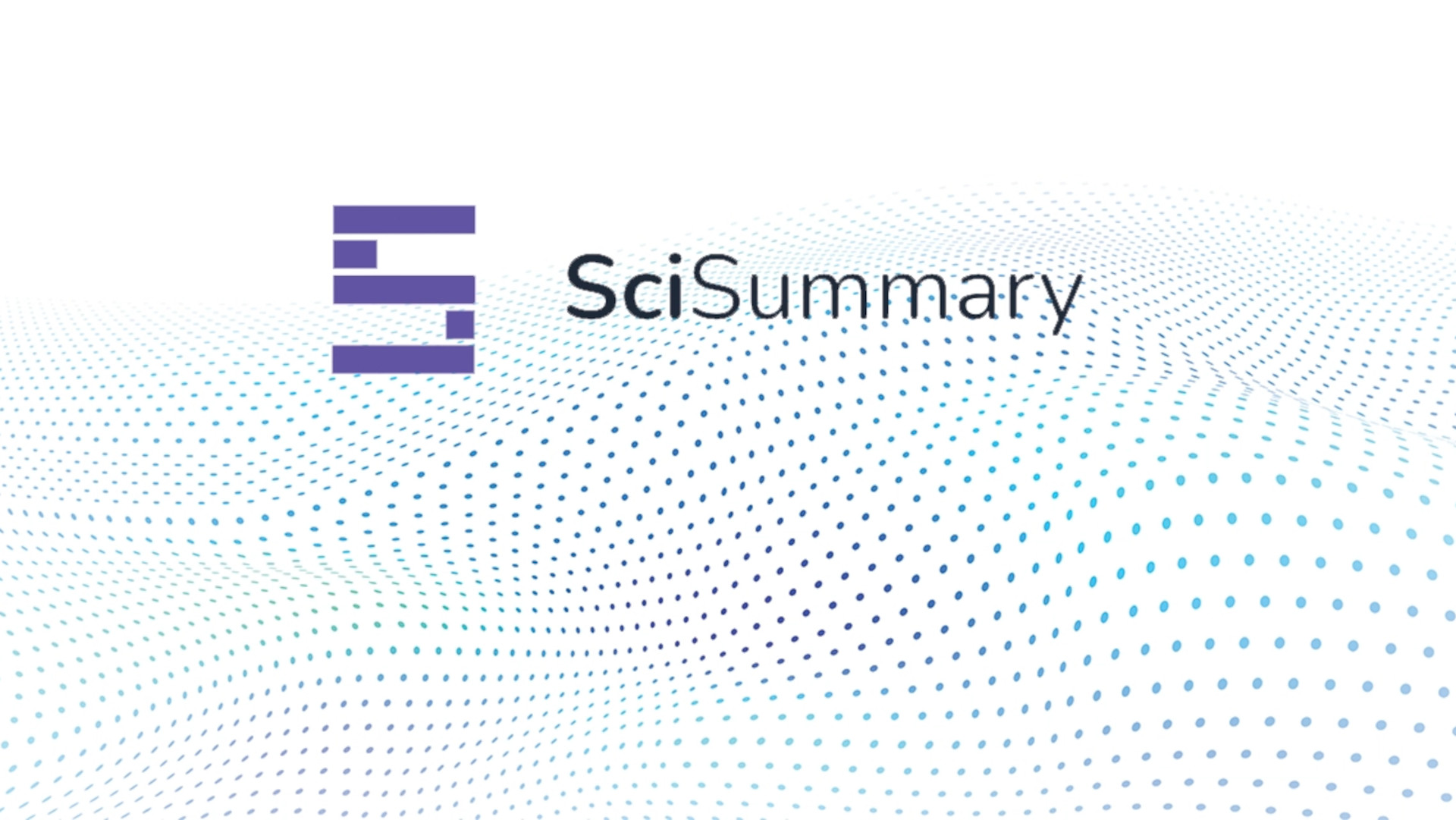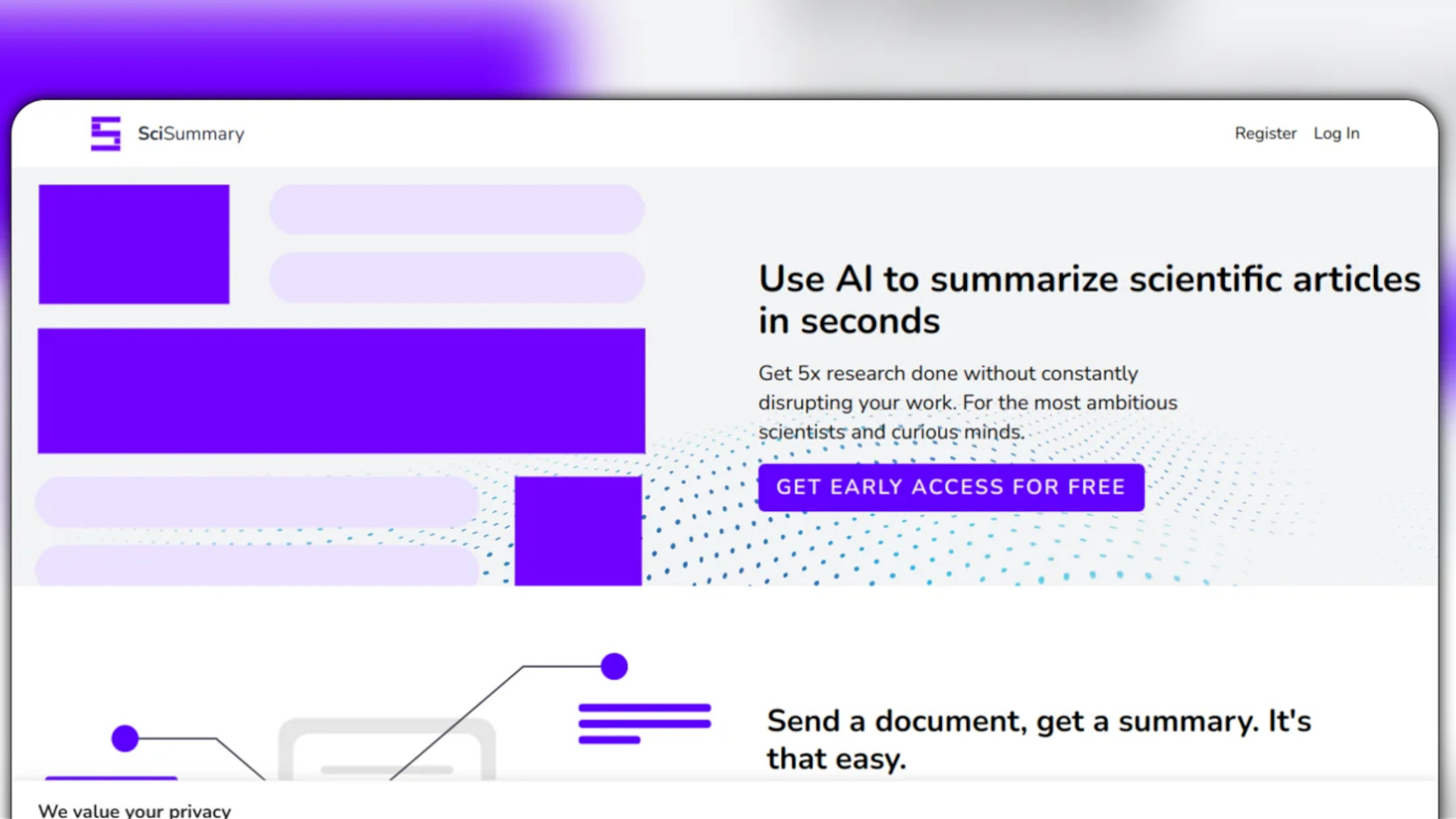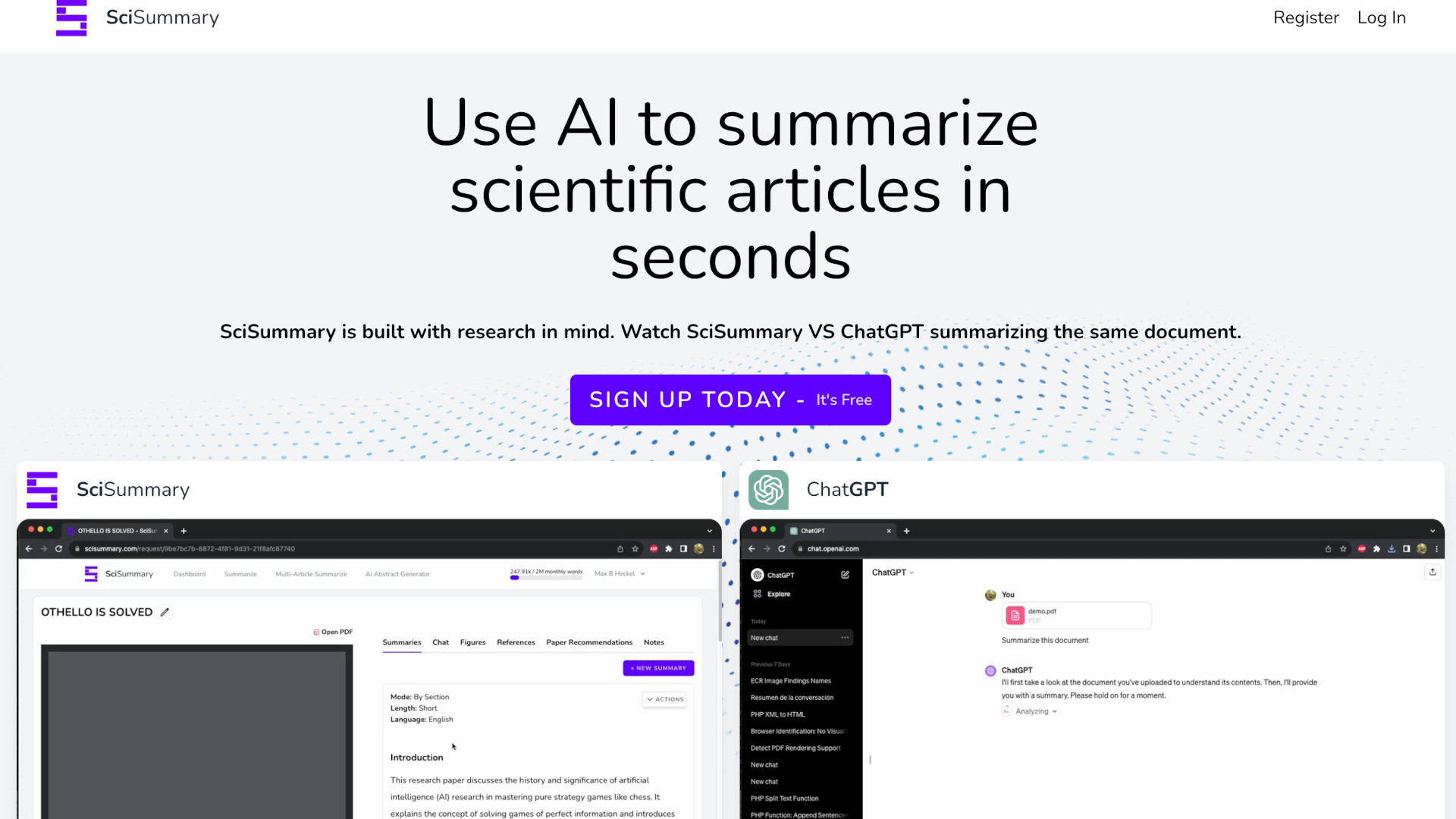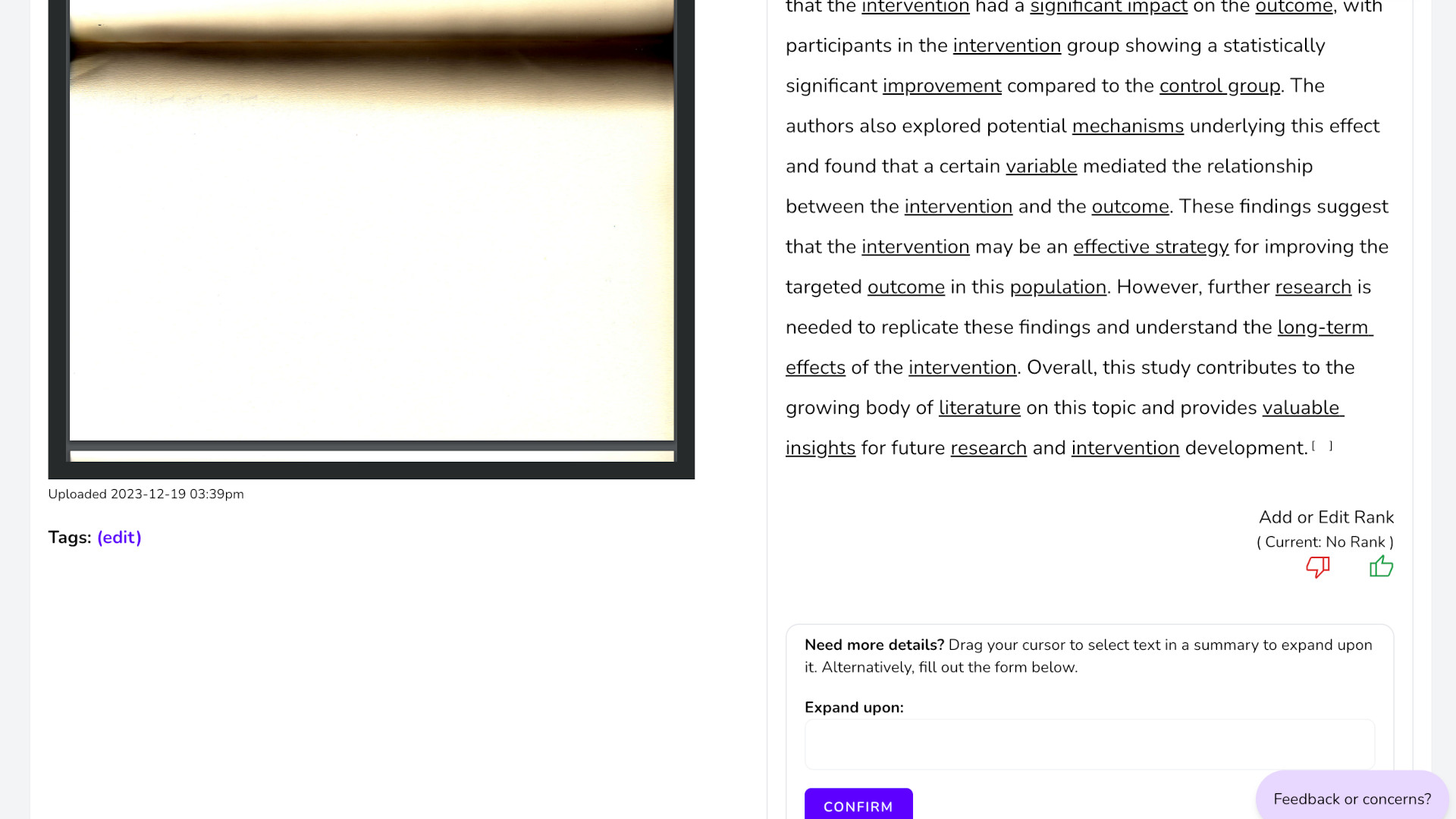SciSummary: How To Use It To Teach
SciSummary is described as ChatGPT with a PhD, offering summaries of science using AI

SciSummary is an artificial intelligence tool that joins the ranks of the many other AI smart-shortcut offerings. It is described as being like ChatGPT equipped with a science PhD.
At its heart, this is a GPT-3-powered AI but it has been custom-tuned, so to speak, in order to best work as a tool you can use to summarize scientific writing. The idea is to offer a simple way to shorten long scientific papers to make them more digestible and easier to read.
In schools this can mean teachers are theoretically able to read more papers, getting summaries to cut down on reading times. But it can also allow students to access a wider breadth of science and STEM-related reading that could help them discover what it is they find most interesting to read in more depth.
This guide aims to lay out all you need to know about SciSummary so you can decide how it best works for your class.
What is SciSummary?
SciSummary is an AI tool that can be used to summarize scientific papers to be read or shared with ease, digitally.

SciSummary uses the Chat GPT-3 AI smarts to work out what it is reading and how to best summarize that for human consumption without losing the important details -- but while cutting back on length.
If you've even had to read multiple scientific papers you will likely understand how useful a tool this can be. And for students, that want to get an idea of a complex STEM-related paper, this could offer a way to reach that without being put off by an otherwise complex read.
Tools and ideas to transform education. Sign up below.
Comparative to using another AI, such as Chat GPT-3 on its own, this presents the results in a more clear and detailed fashion, making it a genuinely useful standalone tool.
How does SciSummary work?
SciSummary is an AI platform so it will use artificial intelligence to work out what you're asking for, how to achieve that, and how to lay out the end result to best serve your request.

SciSummary isn't a search engine though. You'll need to input a paper for this to analyze before giving it back to you in a new form. First you sign up, which can be done with a Google account or a few other options. Then you pick the type of document you're uploading, select it on your drive -- or enter a URL -- and then select if you want brief, medium, or long results, and finally let the AI get to work.
You're then given an output that can be scrolled through, can feature images from the original, such as graphs, and then offers tags at the end and an option to ask for the AI to expand upon an area that might have taken your interest.
It's very straightforward, even for younger students to use, and the results appear in seconds.
What are the best SciSummary features?
SciSummary is simple. As such, you can do this with lots of papers, one after another or as a batch, without it costing you a great deal of time. That makes it a really helpful research tool both for educators and students alike.

SciSummary does have its faults, of course. As you can see from the document above, the results don't make a lot of sense and feel like a placeholder that could apply to anything. But in its defense this was a social sciences paper so perhaps that's not so easy with which to work.
Get into the hard sciences, such as physics, biology, chemistry, or math, and this can work wonders. Crucially, for teachers, it can help you stay up to date with the latest breakthroughs without spending lots of time poring over the long papers.
Since this is all online-based, it means easy access from nearly any device. As long as you can input the paper, including from a URL, then your device can work to read the output.
You also get sent the summary in your inbox, which is a helpful way to check it later and have access, perhaps from a mobile device when on the move.
How much does SciSummary cost?
SciSummary offers several pricing options including a free version of the software, which actually offers a lot of functionality.
The Free plan gets you 10,000 words summarized per month, the first document being up to 200,000 words, the rest after that being 10,000 words maximum, five documents indexed for semantic search, unlimited article searches and import, and summarize references with a click.
The 1M Words plan, charged at $4.99/month or $39.99/year, gets you 1 million words summarized per month, maximum document length of 200,000 words, unlimited bulk summaries, 500 chat messages per month, 1,000 documents indexed for semantic search, and unlimited article searches.
The 2M Words plan, costs $8.99/month or $79.99/year, and gets the above but with you 2 million words summarized per month, 1,000 chat messages, and 2,000 documents indexed.
The Lifetime plan, at $299.99, gets you 10 million words summarized per month, all the above, plus no more fees.
Or there is an option to pay as you go in which documents are charged at a one-off fee for around $2 each.
SciSummary best tips and tricks
Set a summary
Give a complex paper to the class and have them use this tool to summarize it so they learn the uses and pitfalls of AI in this context.
Summarize yourself
Pick a paper you enjoy, summarize it yourself, then use the AI for another version. See if the class can tell the difference and work through why.
Send to self
Load all your latest must-read papers in before you leave to go on a journey, then access the summaries via email to read on the go.
Luke Edwards is a freelance writer and editor with more than two decades of experience covering tech, science, and health. He writes for many publications covering health tech, software and apps, digital teaching tools, VPNs, TV, audio, smart home, antivirus, broadband, smartphones, cars and much more.
